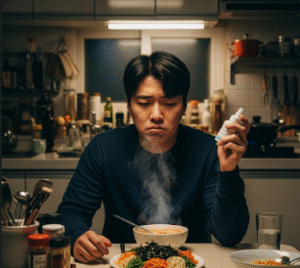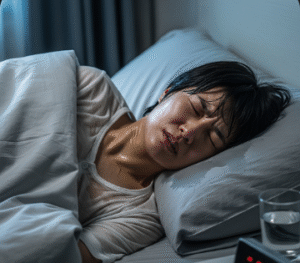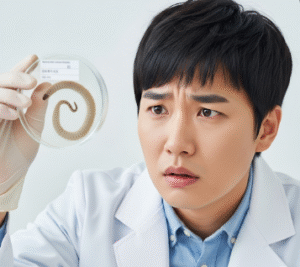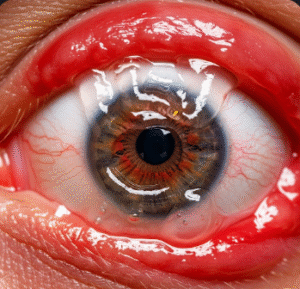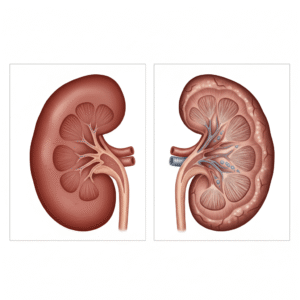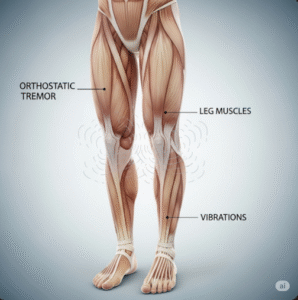Overview
Anxiety is a common mental health condition characterized by excessive worry, fear, or nervousness that can interfere with daily life. While occasional anxiety is a normal response to stress, persistent or intense anxiety can negatively affect emotional, physical, and social well-being. Anxiety may manifest in various forms, including generalized anxiety disorder (GAD), panic disorder, social anxiety, or specific phobias. In Korea, mental health clinics, counseling centers, and hospitals provide comprehensive treatment options—including psychotherapy, medication, and holistic interventions—ensuring individuals receive effective support for managing anxiety.
Key Facts
▶ Prevalence: Anxiety affects millions of people worldwide, including both adults and adolescents.
▶ Types: Generalized anxiety disorder (GAD), social anxiety, panic disorder, and specific phobias.
▶ Common Symptoms: Excessive worry, restlessness, difficulty concentrating, sleep disturbances, and physical symptoms like palpitations.
▶ Impact: Can affect work, school, relationships, and overall quality of life.
▶ Treatment Options in Korea: Counseling, cognitive-behavioral therapy (CBT), mindfulness-based therapies, and medications when needed.
What is Anxiety?
Anxiety is a psychological and physiological response to perceived threats or stressors. While some anxiety is adaptive, helping individuals respond to danger or prepare for challenges, excessive anxiety can become debilitating.
▶ Generalized Anxiety Disorder (GAD): Persistent worry about multiple aspects of life, often disproportionate to the actual situation.
▶ Social Anxiety Disorder: Fear of social interactions, embarrassment, or judgment in public settings.
▶ Panic Disorder: Sudden episodes of intense fear, accompanied by physical symptoms such as heart palpitations and shortness of breath.
▶ Specific Phobias: Anxiety triggered by particular objects or situations, such as heights, animals, or public speaking.
Note: Anxiety often presents alongside physical symptoms, such as muscle tension, fatigue, or gastrointestinal discomfort, making it a holistic health concern.
What Symptoms Are Related to Anxiety?
▶ Excessive Worry: Persistent and uncontrollable concern about daily life.
▶ Restlessness or Nervousness: Difficulty relaxing or feeling “on edge.”
▶ Irritability or Mood Swings: Sudden frustration or emotional sensitivity.
▶ Sleep Disturbances: Trouble falling asleep, waking frequently, or restless sleep.
▶ Difficulty Concentrating: Reduced focus at work, school, or daily tasks.
▶ Physical Symptoms: Palpitations, sweating, headaches, stomachaches, and muscle tension.
▶ Avoidance Behavior: Steering clear of anxiety-inducing situations, impacting social and professional life.
What Causes / Possible Causes
Anxiety can result from a combination of genetic, environmental, and psychological factors:
▶ Genetic Predisposition: Family history of anxiety or other mental health disorders.
▶ Brain Chemistry Imbalance: Altered levels of neurotransmitters such as serotonin and dopamine.
▶ Environmental Stressors: Work pressure, academic demands, family conflicts, or traumatic events.
▶ Personality Traits: Perfectionism, low self-esteem, or heightened sensitivity to stress.
▶ Childhood Experiences: Trauma, neglect, or abuse can increase vulnerability.
▶ Medical Conditions: Thyroid disorders, cardiovascular problems, or chronic illnesses.
▶ Substance Use: Excessive caffeine, alcohol, or certain medications can trigger anxiety.
When Should I See a Doctor?
▶ Persistent Anxiety: Ongoing worry affecting daily life for several weeks or months.
▶ Severe Symptoms: Panic attacks, chest pain, shortness of breath, or extreme restlessness.
▶ Sleep or Appetite Disruptions: Significant disturbances affecting overall health.
▶ Decline in Performance: Difficulty managing work, school, or social responsibilities.
▶ Social Withdrawal: Avoiding friends, family, or social situations due to fear.
▶ Physical Complaints: Headaches, gastrointestinal issues, or muscle tension without a clear medical cause.
Tip: Early intervention improves outcomes and prevents chronic anxiety from interfering with personal and professional life.
Care and Treatment
Management of anxiety often involves multifaceted strategies combining lifestyle changes, therapy, and medical care:
▶ Psychotherapy: Cognitive-behavioral therapy (CBT) is the most effective approach for reducing anxiety.
▶ Lifestyle Adjustments: Regular exercise, balanced diet, and stress management techniques.
▶ Mindfulness and Relaxation: Meditation, deep breathing exercises, and yoga can reduce physiological stress responses.
▶ Support Networks: Engaging family, friends, or peer support groups.
▶ Sleep Hygiene: Establishing consistent sleep routines to improve restorative sleep.
▶ Limiting Stimulants: Reducing caffeine and alcohol intake to minimize anxiety triggers.
Treatment Options in Korea
Counseling and Therapy:
▶ Cognitive Behavioral Therapy (CBT): Structured sessions to change negative thought patterns.
▶ Family Therapy: Enhances communication and reduces familial stress contributing to anxiety.
▶ Group Therapy: Peer support and skill-building in a structured environment.
Medical Treatments:
▶ Medication: Antidepressants (SSRIs, SNRIs) or anti-anxiety medications prescribed by licensed psychiatrists.
▶ Monitoring: Regular follow-ups to adjust medication or therapy plans as needed.
School and Community Support:
▶ School Counseling Programs: Support for students dealing with academic or social anxiety.
▶ Community Mental Health Centers: Access to professional services outside hospital settings.
▶ Educational Workshops: Stress management, mindfulness, and emotional resilience programs.
Outcome: With early recognition, proper therapy, and supportive care in Korea, individuals with anxiety can manage symptoms effectively, improve emotional well-being, and maintain a productive lifestyle.


